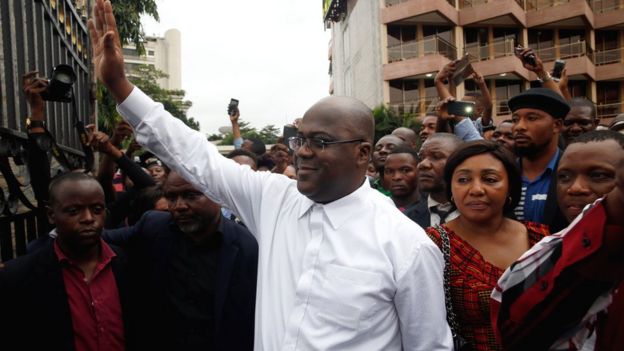
Felix Tshisekedi has been named as
the provisional winner of presidential elections in the Democratic
Republic of Congo, a historic victory for an opposition leader.
But
questions have been raised about the accuracy of the results amid
accusations of a power-sharing deal with outgoing President Joseph
Kabila.The electoral commission said Mr Tshisekedi had received 38.5% of the vote on 30 December, compared to 34.7% for Martin Fayulu, another opposition figure. Ruling coalition candidate Emmanuel Shadary took 23.8%.
Those raising doubts about the results include the French and Belgian governments and country's influential Catholic Church.
What's their evidence?
The Catholic Church, through the National Episcopal Conference of Congo (Cenco), reported that the results, announced in the early hours of Thursday morning, did not match its findings.But Cenco, which said it had 40,000 election observers who had visited all 75,000 polling stations, has not released its data.
Three diplomats speaking anonymously to the Reuters news agency said the Church's tallies showed that Mr Fayulu had won.
Opinion polls always need to be treated with caution - even more so in a country where the political climate is volatile.
But African politics expert Pierre Englebert says data from opinion polls conducted before the 30 December election show the official results were "highly implausible".
"The probability Tshisekedi could have scored 38% in a free election is less than 0.0000," he wrote in an article for online magazine African Arguments, pointing to polling data by Berci and Ipsos for the Congo Research Group.
He said the data predicted:
- A 95% chance that Mr Tshisekedi would get somewhere between 21.3% and 25% of the vote
- Mr Fayulu would have obtained between 39% and 43% of the vote
- Mr Shadary would get between 14% and 17.4%.
So how would fraud be possible?
There are many ways to rig an election.
Academic Nic Cheeseman,
who has written a book on how to do just this, told the BBC that if the
election was rigged it probably happened during the collation of the
results.
He said very few people would have to be involved in this.
"It's very easy. You can have a small number of people in a central office who release the result.
"You can have one person just adding a 1,000 votes to one candidate and subtracting 1,000 from another on an Excel spreadsheet."
He
said the risk of fraud was normally avoided by observers tabulating the
results in parallel. That did take place, but we do not have the data.
Throughout
the election campaign, the use of electronic voting machines was a
major source of contention. Voters used the tablet-like devices to
select candidates, and then it printed their ballot paper with their
choices. The machines were also meant to keep an electronic tally to
help verify the results.
But Mr Englebert says that in the days following the vote, election observers reported that some of these machines went missing.
Why is the Church not announcing who it thinks won?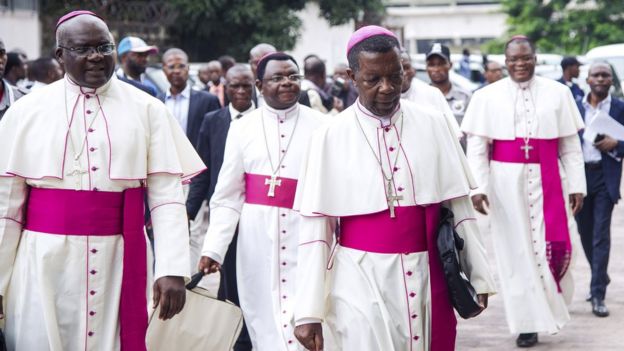
The observers were prohibited by law from releasing their findings
before the electoral commission had announced the official results. It
is not clear whether the law applies after the official announcement.
But
the Catholic Church knows from the experience of past crackdowns that
leading people on to the streets can have tragic consequences - and the
ruling coalition has warned against "preparing the population for
insurrection".
Séverine Autesserre, author of the book The Trouble
with Congo, says the Congolese police have been brutal in their
dealings with protesters in the past.
She told the BBC that if the
Church, whose followers make up about 40% of the country's 80 million
population, were to announce that Mr Fayulu had won - the consequences
could be dire.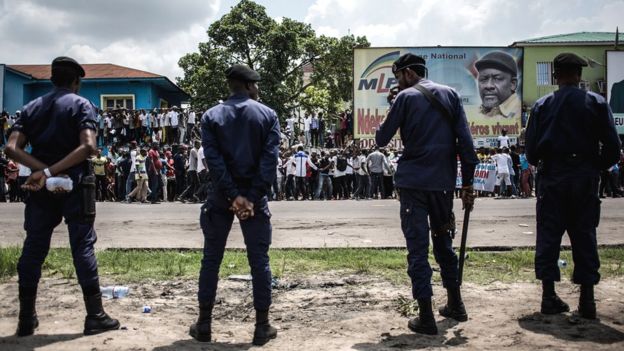
"You would have huge, violent protests. You would have riots," she told the BBC.
"The police would crackdown on the protesters and that would result in a lot of deaths."
On Friday, Catholic bishops urged the UN Security Council to put pressure on the Congolese electoral commission to publish the full results from each polling station.


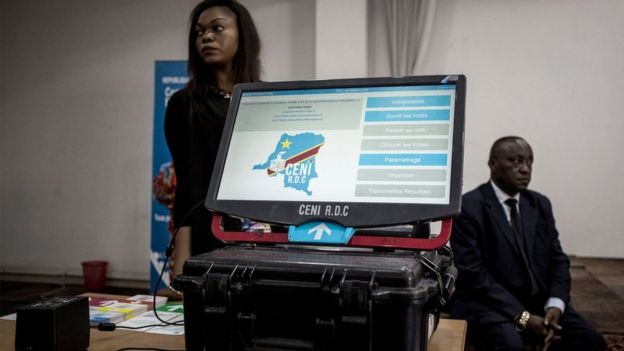
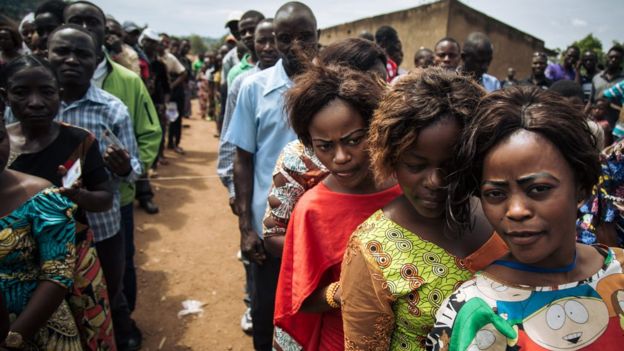
No comments:
Post a Comment